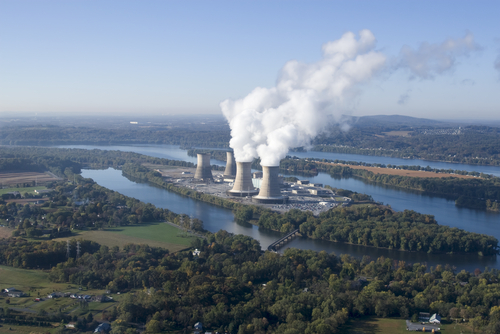
Greater Pittsburgh Chamber of Commerce President Matt Smith recently released a statement opposing proposed legislation that seeks to support continued operation of nuclear power plants in Pennsylvania.
The Keep Powering Pennsylvania Act, HB 11, and its Senate counterpart, SB 510, state that preserving the operations of the commonwealth’s five nuclear power plants through government subsidies is necessary for long-term employment, economic, environmental, and grid resilience benefits.
The legislation would amend the state’s Alternative Energy Portfolio Standards Act to add nuclear power as a category of zero-emission, renewable energy sources that Pennsylvania electric utilities must purchase power from.
Smith argued that the legislation is counterproductive, creating an uneven support balance through Pennsylvania’s energy market.
“One key pillar of our agenda is support for a more competitive operating environment for employers,” he said on April 25. “The proposed legislation would in effect tip the scales toward support of one energy sector and interrupt the natural flow of free and competitive markets, making electricity more expensive for consumers and businesses alike. This added cost of doing business in Pennsylvania sends the wrong message to those we are seeking to attract and retain. The opportunity lost in future job creation, due to an unfavorable business climate, far outweighs any short-term, temporary fix these proposals purport to create.”
The Greater Pittsburgh Chamber of Commerce, Smith said, stands as the advocacy arm of the Allegheny Conference on Community Development. It has worked the past year with business, academic, government, non-profit and philanthropic community partners to develop a set of sustainability guidelines to assist the region in maintaining a thriving competitive economy while enhancing the environment and quality of place.
“We believe we can have both improved economic growth and quality of life,” Smith said. “We’ve assessed the current legislative proposals through this sustainability framework, which embraces both of these objectives, and concluded that the proposals do not strike the right balance between a healthy environment and a healthy economy.”